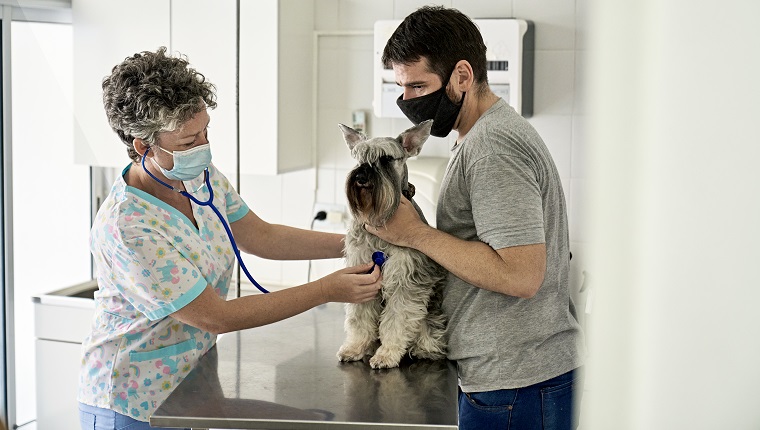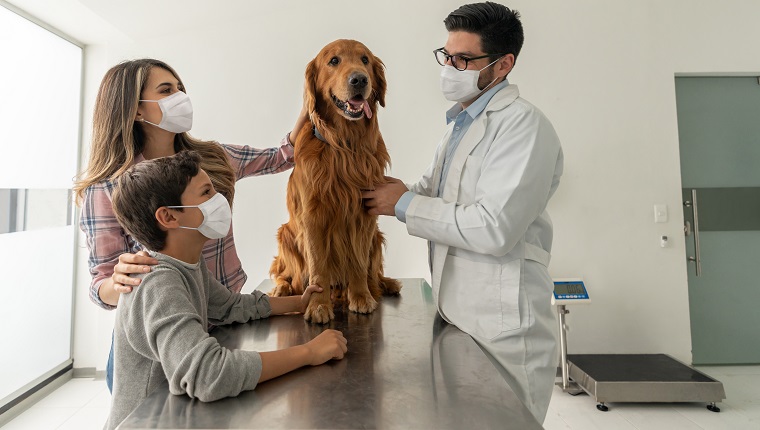Canine coronavirus infection in dogs, often abbreviated to CCV, refers to an intestinal disease that dogs often contract by coming into contact with the infected feces of another dog.
The infection affects the small intestine and the lymph nodes; although in many cases, it produces no visible symptoms. In general, the condition is seen as being on the less serious side of the spectrum.
Please note: This is a separate medical condition from the disease COVID-19.
If you see signs that your dog might be developing any kind of infection, then you must consult your veterinarian for a proper diagnosis and course of treatment. Here’s what you should know about the symptoms, causes, and treatments of canine coronavirus infection in dogs.
Symptoms Of Canine Coronavirus Infection In Dogs
Canine coronavirus infection in dogs will oftentimes not produce any noticeable symptoms. Some of the symptoms that may occasionally present themselves include:
- Diarrhea, especially if the stool is a shade of orange
- Vomiting
- Seeming to be depressed
- Developing anorexia
Causes Of Canine Coronavirus Infection In Dogs

The cause of canine coronavirus in dogs is generally exposure to the virus. Some of the ways a dog can contract the infection include:
- Exposure to infected feces
- Direct contact with an infected dog
- Drinking or eating from a contaminated bowl
A dog that picks up the disease can transmit the virus for up to six months after their initial infection.
Veterinary Treatments
Canine coronavirus infection can be tricky to diagnose at first because a dog that’s infected might not show any symptoms. Additionally, standard blood and urine tests might produce similar results to other viral or bacterial infections.
In many instances, the use of antibody and serum tests can help vets confirm their diagnosis.
In general, there is no specific treatment for this disease that’s currently available. If an infected dog is showing symptoms, then a vet might suggest medicine or steps to treat those symptoms.
As ever, if your vet prescribes your dog medicine, it’s important to stick to the precise dosage and frequency instructions and complete the full course of medication.
A smart way to limit the chances of your dog contracting this viral infection is to ask about vaccines that prevent the disease. But note again that the vaccine for this infection will not protect your dog from COVID-19.
Has your dog ever picked up a canine coronavirus infection? What steps did your vet take to help your dog recover? Tell us all about it in the comments below.









